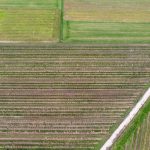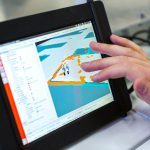In today’s fast-paced world, where dietary restrictions and health-conscious choices are becoming increasingly prevalent, the demand for accurate and efficient methods to detect nutritional values and allergens in food is on the rise. Enter food scanners, innovative devices that are revolutionizing the way we assess the contents of our meals. These handheld gadgets utilize advanced technology to provide consumers with real-time information about the ingredients, nutritional composition, and potential allergens present in the food they are about to consume. Let’s delve into how food scanners are changing the game when it comes to making informed decisions about what we eat.
**Enhancing Transparency in Food Labeling**
One of the key benefits of using food scanners is the ability to enhance transparency in food labeling. While packaged foods are required to list their ingredients and nutritional information on the label, these details can sometimes be difficult to decipher or may not provide a complete picture. Food scanners offer a solution by allowing consumers to scan the barcode or image of a product and instantly receive detailed information about its contents. This level of transparency empowers individuals to make more informed choices based on their dietary needs and preferences.
**Detecting Nutritional Values**
Food scanners are equipped with sensors that can analyze the chemical composition of food items, providing users with accurate insight into their nutritional values. Whether you are tracking your calorie intake, monitoring your macronutrient levels, or aiming to meet specific dietary goals, a food scanner can be a valuable tool in helping you make healthier choices. By quickly scanning your meals or snacks, you can access data on calories, fat, protein, carbohydrates, vitamins, and more, enabling you to make informed decisions about your diet.
**Identifying Allergens**
For individuals with food allergies or sensitivities, avoiding potential allergens is crucial for their health and well-being. Food scanners play a vital role in this aspect by enabling users to identify allergens present in food products. By scanning a product or dish, individuals can receive instant alerts if the item contains common allergens such as nuts, dairy, soy, gluten, or shellfish. This real-time information is invaluable for those with allergies, allowing them to confidently navigate their food choices and steer clear of substances that may trigger adverse reactions.
**Promoting Dietary Personalization**
One of the most significant advantages of food scanners is their ability to promote dietary personalization. Whether you follow a specific eating plan, have dietary restrictions, or are simply looking to optimize your nutrition, a food scanner can help tailor your food choices to align with your individual needs. By scanning various food items, you can assess their compatibility with your dietary requirements and make adjustments as needed. This personalized approach to nutrition empowers you to take control of your diet and make choices that support your health and well-being.
**Empowering Consumer Education**
Food scanners not only provide users with immediate information about the nutritional content and allergens in their food but also serve as educational tools that promote greater awareness and understanding of dietary choices. By using a food scanner regularly, individuals can learn more about the nutritional value of different foods, how to interpret food labels, and how to make healthier selections. This hands-on approach to nutrition education empowers consumers to make informed decisions both in the grocery store and when dining out, fostering a greater sense of control over their dietary habits.
**In Summary**
Food scanners are transforming the way we interact with food by offering real-time insights into nutritional values and allergens. These innovative devices enhance transparency in food labeling, empower consumers to make informed choices, and promote dietary personalization. By using food scanners, individuals can gain a deeper understanding of their food choices, identify potential allergens, and tailor their diets to meet their specific needs. As technology continues to evolve, food scanners are poised to become indispensable tools for those seeking to make healthier and more informed decisions about what they eat.





